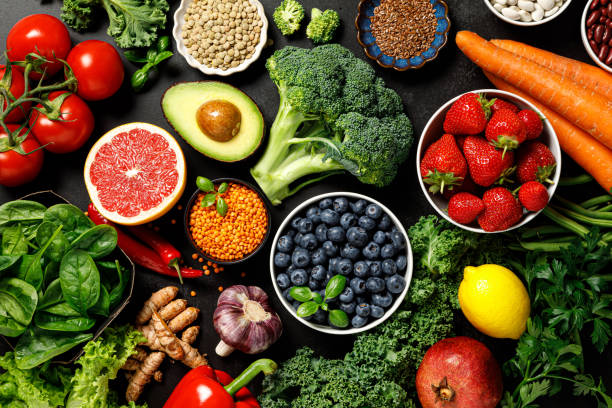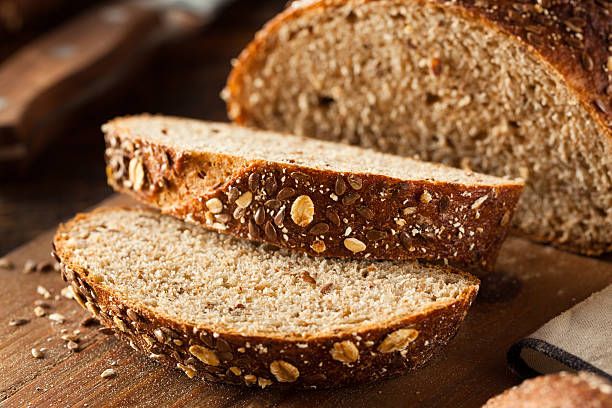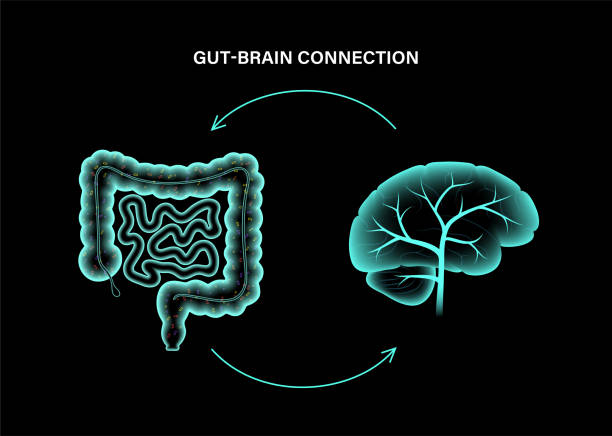Research has shown that everything from cholesterol levels in the human body to mental illness is linked to gut or gut health.
As knowledge about the impact of gut health on our overall health has increased, so has the interest in maintaining good gut health.
According to data from Polaris Market Research, the global probiotic market reached nearly US$60 billion per year in 2021 and the rate is expected to grow by more than 7 percent per year until 2030.

What is a healthy gut?
What is a healthy gut?
The structure of the human body’s intestine, that is, from the stomach to the anus, is quite complex.
Because of this complex structure, identifying gut wellness is not as simple as detecting the well-being of other organs.
There is no single way that can be used to measure gut health.
Our gut is full of microbes or germs. Their number is so high that if all the microbes were combined, their weight would be more than 1 kg 800 grams.
The gut contains a wide variety of components such as bile, mucus, various types of microorganisms, digested foods, undigested or absorbed foods, metabolized foods.
There are 100 billion bacteria per gram of these intestinal components.
Professor at the University of Oxford. Katerina Johnson has researched the relationship between the gut and the brain.
“A healthy gut contains a lot of diverse microbes.
Microbiome science is still a relatively immature research area, meaning we still don’t know in detail what a healthy gut looks like.
He says: “Our microbiomes are so distinct and diverse in characteristics, there are thousands of different species of microbiomes (and different strains within species), many of which we don’t know about function. “

Why is it important to have a healthy gut?
Dr. Johnson says the gut can affect “every organ in the body.”
There is a strong communication system between the brain and the intestine which is known as the gut brain axis i.e. gut-brain axis in Bengali.
Here, the gut and brain are essential to each other — studies have shown that brain development can be abnormal due to the absence of the gut microbiome.
The gut is sometimes called the second brain because the bacteria in the gut can influence our behavior through the brain’s 100 million neurons.
Neurons are cells in our brain and central nervous system that send messages to our body when to behave.
Our gut, in the brain, can produce neurotransmitters like serotonin that play a role in regulating our mood.
A neurotransmitter is a type of messenger that sends chemical signals from one neuron to another through nerve joints.
The biggest function of our intestines is to absorb nutrients from food.
“We cannot lose the water and minerals the body needs through feces,” says Dr. Tim Smith, a gastroenterologist in India. This is what Venkatraman Krishna explains.
Megan Rossi, also known as The Gut Health Doctor in the UK, says there are more than 70 different chronic health risks that occur when there is an imbalance of microbes in the gut.
These include heart disease and respiratory illnesses. As well as autoimmune diseases like rheumatoid arthritis can occur.
About 70 percent of our body’s immune cells live in our gut, and these cells are constantly connected to the body’s immune system. Said Dr. Rossi.
That’s why “people with good gut health seem to have normal immune systems,” he adds.

How can you improve gut health?
A few years ago, after a study conducted by the American Gut Project in 2018, experts began recommending eating at least 30 different plant foods per week to increase the diversity of the gut microbiome.
This includes not only fruits and vegetables, but also seeds, spices, and nuts.
Dr. Rossi suggests that it is possible to bring this variety by making small changes in food recipes and buying different species of fruits from the market.
“If you eat grain porridge for breakfast, you can eat half of the bowl with oats and the other half with cooked quinoa, instead of just oats, and you can sprinkle different pieces of fruit and seeds on it. “
“If you eat bolognese (meat dish) once a week, you can substitute some meat with fibre-rich lentils. “
According to the UK’s National Health Service, a fiber-rich or fibrous food gives us the feeling of being full.
Fibre aids our digestion and prevents constipation, which is why the UK’s National Health Service recommends adults at least 30 grams per day

In this case, you can choose brown bread or grain bread rather than white bread. As well as opting for brown rice or whole wheat pasta, you will eat more fiber.
Other sources of fiber include potatoes (such as boiled potatoes) and legumes such as beans, lentils or chickpeas, which can be added to stews, curries and salads.
Probiotic foods (certain types of fiber and carbohydrates) can help increase the good bacteria in the gut.
Examples include bananas, onions and onion leaves, garlic, cabbage, leeks, oats, asparagus, nectarine fruits, blueberries and grapes.
“Eating a balanced, nutrient-rich diet is crucial for long-term health when we are in our 20s,” said Dr Hanisha Khemani, a Pakistani gastroenterologist.
“During this critical time, what you put into your diet can affect whether or not you will have chronic disease. Eating habits during this period can affect mental and intellectual health later in life. It can also ensure overall physical fitness,” he says.
Intermittent fasting or continuous fasting, that is, keeping a break of at least 12 hours between dinner and breakfast, can benefit intestinal microbes.
Professor Tim Spector of King’s College London writes in his book Spoon-Fed: Why almost everything we’ve been told about food is wrong.

What foods are bad for gut health?
Ultra-processed foods, alcohol and tobacco are not good for your gut, says Dr. Krishna explained.
Too many processed foods contain ingredients that suppress the growth of ‘good’ bacteria in our gut or increase ‘bad’ bacteria.
Depending on where you are in the world, whether you should skip street food or not.
If street food in your country or city is prepared in an unhygienic way, then those vendors should avoid eating food.
If you buy fruits and vegetables from the street and wash them thoroughly before eating them so that dangerous viruses or bacteria can be avoided, Dr. Krishna added.
Stress also affects our intestines. Acid reflux from this stress – in simple words can increase stomach gas and ulceration or stomach irritation.
Dr. Johnson says people who are under a lot of stress have a lower amount of diverse microbiomes in their gut.

How effective are probiotics and gut health tests?
Experts say that if probiotics are used for specific reasons, then it can work.
“In this case, you have to take this probiotic in specific amounts, for a certain period of time, and under certain conditions,” says Dr. Megan Rossi.
“There is no evidence or guarantee that the probiotic product you see will improve your gut health. Rather, we do not need to take what is sold to us every day. ”
In some countries, probiotic product companies offer to check the gut health of consumers, and they collect their stool samples from customers and test them in the lab.
Dr. Rossi said that the profits that companies advertise in these tests are not really profitable.
However, through that test, you can get some idea about the diversity of your gut microbes.
British doctor and TV presenter. According to Zand, it can be difficult to get a fair price for the money you buy these products for.
“They’ll give you some general advice, but none of it is evidence-based,” he says.
“I would say save your money and talk to your doctor if you have gut problems. “
